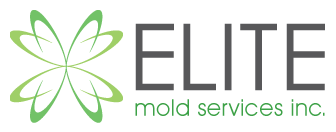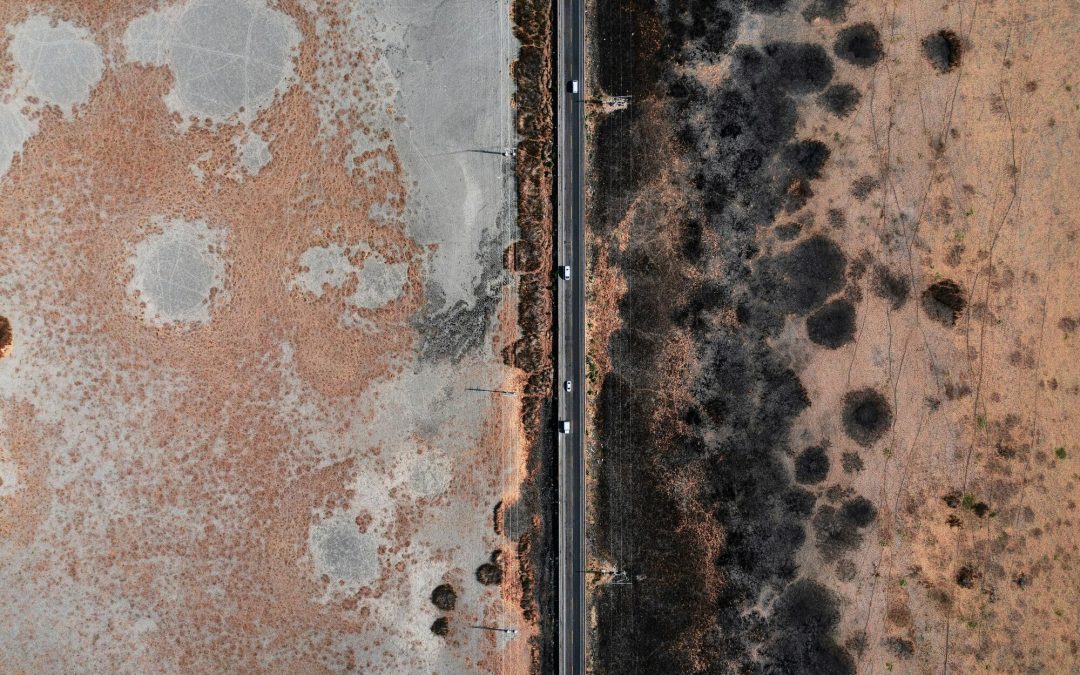Are you aware that mold can silently infiltrate any home, regardless of age or location? Mold inspection in Orlando isn’t just a precaution-it’s a necessity.
Consider this: mold is natural and you can find it everywhere. That doesn’t mean you want it in your home. Mold’s detrimental effects on health and property value are universal concerns.
Take control of mold before it controls you! Learn more about the dangers of mold. We’ll also discuss how working with a company that specializes in mold inspection services can help you keep your home safe.
The Hidden World of Mold
Since it thrives in dark, damp spots, let’s shed some light on mold. Mold, including the notorious black mold or Stachybotrys chartarum, poses significant health risks to you and your loved ones.
Mold exposure can lead to respiratory issues, allergies, and neurological complications.
Mold isn’t content to stay put–it’s an ever-present threat, constantly seeking new areas to inhabit. How does it do this? By releasing tiny spores into the air.
Mold spores travel until they find a suitable surface to settle on and start a new colony. They can hitch a ride on air currents or land on surfaces through contact, making mold growth a persistent problem.
Knowledge is your greatest ally against mold. By learning about the different types of mold you can better recognize and tackle mold growth in your home.
Spotting Telltale Signs of Mold Infestation
Mold isn’t always as conspicuous as we might think. While the sight of fuzzy patches on walls might scream “mold,” there are subtler indicators to watch out for. Keep an eye out for the following signs of mold infestation:
Peeling Wallpaper
Moisture from mold growth can cause wallpaper to peel or bubble. Check along the edges of the paper for evidence of mold.
Discolored Grout
Mold thrives in damp environments. If you notice dark patches or discoloration between tiles in your kitchen or bathroom, don’t ignore it.
Musty Odor
A persistent musty smell may indicate mold lurking behind walls or under flooring. Since you can’t see those hidden spaces, you’ll need to rely on the expertise of a mold inspector to identify the odor.
Water Stains
Unexplained water stains on walls or ceilings can signal an underlying moisture problem. For instance, you could have a roof leak, which creates ideal conditions for mold growth.
Allergic Reactions
If you or anyone in your household, experiences increased allergic symptoms, such as sneezing, coughing, or congestion, beware. These symptoms may suggest mold contamination.
Understanding the financial and health implications of mold damage is essential for homeowners. By emphasizing the importance of early detection through mold testing, you can protect property value and safeguard against health risks.
Financial Ramifications of Mold Damage
The impact of a mold infestation extends far beyond the visible signs of damage. And while the health implications are concerning, the financial toll can be equally distressing.
Counting the Costs
Mold damage doesn’t only compromise the structural integrity of your home. It can also devalue your property. The presence of mold can discourage potential buyers from making an offer on your property.
The expenses associated with mold remediation and repairs can quickly spiral out of control. What may start as a small patch of mold can escalate into a major renovation project, draining your financial resources and disrupting your budget.
Protecting Your Investment
Investing in mold inspection helps preserve your home’s physical integrity. Early detection of mold allows for prompt intervention, minimizing the extent of damage and reducing remediation costs. By addressing mold issues proactively, you can protect your investment and ensure the long-term value of your property.
Mold Inspection Helps Prevent Internal Damage
Mold poses a significant threat to the internal components of your home. Damage may start in the structure, but it will spread if ignored. As it spreads, mold can infiltrate various materials, including:
- Wood
- Drywall
- Insulation
- Carpeting
Over time, mold weakens these materials, compromising their integrity.
Protect Your Belongings
Beyond structural concerns, mold can also wreak havoc on your belongings and personal items. From clothing and furniture to books and electronics, no item is immune to mold damage when left unchecked.
Mold spores can settle on surfaces and permeate porous materials, causing staining, discoloration, and irreversible damage. By conducting regular mold inspections, you can identify and address mold growth before it spreads to your possessions, preserving their condition and value.
Preventing Hidden Deterioration
One of the most insidious aspects of mold is its ability to thrive in hidden areas of your home. Mold can lurk behind walls, under flooring, and in HVAC systems, escaping detection until significant damage has occurred.
A comprehensive mold inspection targets hidden areas, allowing for early detection and intervention to prevent further deterioration.
DIY Mold Inspection: A Cautionary Guide
While DIY mold inspection may seem appealing, it’s important to recognize its limitations and potential risks. Begin by examining common spots where mold thrives. Be extra vigilant in the following areas:
- Bathrooms
- Kitchens
- Laundry rooms
- Basements
Pay close attention to damp or humid environments, as these provide ideal breeding grounds for mold growth. If instead of a basement, your home has a crawl space, you should check there for mold.
Essential Tools for Basic Inspection
Armed with caution and a flashlight, you can begin your DIY mold inspection. While professional-grade equipment offers the best insights, you can start with a flashlight, a magnifying glass, and a moisture meter.
Remember that these tools may not provide the accuracy and thoroughness of a professional inspection.
What to Do When You Discover Mold
Should your DIY inspection reveal signs of mold, proceed with caution. DIY removal methods may not pinpoint the root cause of mold growth and may exacerbate the problem.
Common DIY approaches include using bleach, vinegar, or commercial mold removal products to clean affected surfaces. However, these methods may only remove surface mold. They fail to address underlying issues such as moisture infiltration and hidden mold growth.
DIY mold remediation poses several risks and limitations that homeowners should consider:
Inadequate Removal
DIY methods often fail to eliminate mold spores. This allows for regrowth and continued contamination.
Health Hazards
Improper handling of mold during DIY remediation can expose individuals to harmful mold spores and mycotoxins. Exposure can lead to respiratory issues and other health problems.
Masking Symptoms
DIY removal may only address visible mold growth. You could overlook hidden mold colonies lurking behind walls or under flooring.
While DIY mold inspections and remediation may offer a sense of empowerment, they pale in comparison to professional services.
The Value of Professional Mold Inspection
While your mission is to protect your home against mold, the expertise of a professional mold inspector is priceless. From qualifications to tools and techniques, a professional mold inspector is who you should call if you want to eliminate, not just manage, mold. Here’s why:
Qualifications and Certifications
When researching mold inspection services, pay attention to specific qualifications and certifications. A reputable mold inspector should hold certifications from recognized organizations. Ask about their affiliations with the National Association of Mold Professionals (NAMP) or the Indoor Air Quality Association (IAQA).
These certifications prove that the inspector has undergone rigorous training and possesses the necessary expertise to conduct thorough mold inspections.
Advanced Tools and Techniques
Professional mold inspectors use specialized tools and techniques to assess mold growth accurately. These may include infrared cameras to detect hidden moisture sources and mold growth behind walls or under flooring.
These tools allow inspectors to identify hidden mold growth, assess potential risks to occupants’ health, and develop effective remediation strategies.
Indoor Air Quality Assessments
Companies specializing in mold inspections often extend their services to include indoor air quality (IAQ) assessments. These assessments involve evaluating various factors that contribute to indoor air quality.
During an IAQ assessment, trained professionals use specialized equipment to measure and analyze key indicators such as:
- Airborne Particulates
- Volatile Organic Compounds (VOCs)
- Humidity Levels
- Carbon Dioxide (CO2) Levels
By conducting an IAQ assessment, companies can identify potential sources of indoor air pollution and develop strategies to improve air quality. This may involve recommendations for ventilation improvements, air filtration systems, or changes in household habits.
Mold and Indoor Air Quality
Investing in IAQ assessments is essential for several reasons. Poor indoor air quality can exacerbate respiratory conditions, allergies, and other health issues. By addressing air quality issues, homeowners can create a healthier indoor environment.
Good indoor air quality contributes to occupant comfort and productivity. Proper ventilation and filtration can reduce odors, minimize dust and allergens, and create a more pleasant living or working environment.
IAQ assessments can help protect your property by identifying potential sources of moisture and mold growth. Addressing these issues with the best air quality products can prevent costly damage to building materials and furnishings.
Schedule Mold Inspection in Orlando Today
From understanding the subtle signs of mold infestation to the importance of professional inspection, safeguarding your home demands vigilance and expertise.
At Elite Mold Services, Inc., our state-licensed inspectors and certified specialists use industry-specific protocols to ensure thorough assessments and effective solutions. We promise to treat your home and property as our own.
Schedule your mold inspection in Orlando today and partner with us to protect your home from the hidden dangers of mold.

